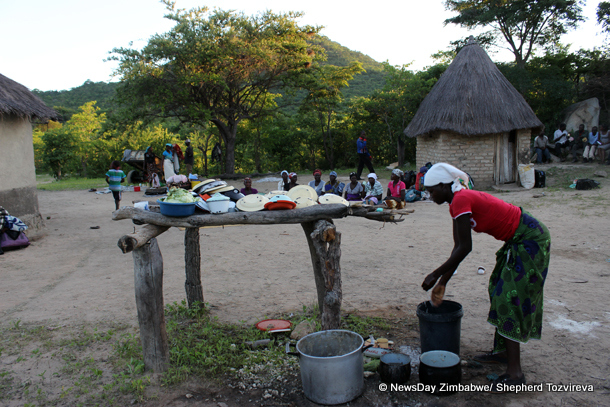
A LACK of political will is perpetuating poverty, with more than 60% of Zimbabweans being deemed poor, while 16% are in extreme lack, officials and experts have said.
Phyllis Mbanje
Poverty, according to Macro-economic Planning and Investment Promotion ministry permanent secretary, Desire Sibanda, is far worse in rural areas, where 76% of the households are poor.
“There is need for proper policies to address this challenge, which has denied the majority access to basic social services,” he said.
The country is facing a number of socio-economic hardships largely emanating from the economic meltdown experienced in previous years
According to the Zimbabwe Poverty Atlas for 2015, Matabeleland North was worst affected with a prevalence of 85,7%, while Harare fared much better with only 36,4%.
Speaking at a discussion on Sustainable Development Goals and poverty reduction round table convened by the United Nations Children’s Fund, Sibanda said high levels of de-industrialisation resulted in loss of national savings and worsened the country’s social welfare.
During the country’s decline in the past 15 years, gross domestic product contracted by 40% and capacity utilisation levels dropped from 80% to less than 10%.
- Chamisa under fire over US$120K donation
- Mavhunga puts DeMbare into Chibuku quarterfinals
- Pension funds bet on Cabora Bassa oilfields
- Councils defy govt fire tender directive
Keep Reading
“The decline in economy became the main cause of poverty, with unemployment soaring at levels of 80%,” Sibanda said.
He said one of the key lessons for the country was that economic growth alone would not reduce poverty, unless there were strong social protection policies.
The Macro-economic Planning ministry secretary said limited access to international finance was worsening the situation in an economy that was highly informalised.
“As a country, we need to be innovative and move away from relying too much on donor funds,” he said.
However, some participants at the meeting challenged the government to review some policies and plug leakages.
Outspoken University of Zimbabwe lecturer, Hilda Matarira said political millionaires were busy externalising money from Africa.
“We need to stop envisioning and just have one vision as a country, otherwise the ship will capsize,” she said.
Others felt job freezes, like the one imposed on nurses, were further plunging masses into poverty.







